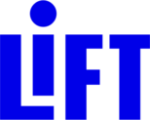In February 2013, when LIFT’s Los Angeles site opened its doors, 27-year-old Jacqueline Gonzalez-Reyes was one of the advocates waiting for members. Jackie was ready to hear stories of personal struggles because she has one of her own.
Born in Los Angeles to Mexican immigrant parents, Jackie was a quiet girl. In fact, she says, “My first ten years I was practically silent. Then, in religion class, I finally piped up and asked why none of the altar servers were girls.” The teacher led her to the principal’s office, and Jackie was certain she was getting expelled. Instead, the principal listened to her concerns and changed the rules, allowing girls to be altar servers, too. “I learned that it’s okay to speak up,” she says.
Jackie attended Xavier University in Cincinnati and simultaneously worked as a community organizer. She helped organize workers at a food processing plant and was part of the management team that helped Cincinnati janitors gain their first union contract. She was on a path to a career in sociology, but first she wanted to see the world.
Her travels took her to Sunder Nagri, a slum on the outskirts of Delhi, India, where she witnessed poverty on a scale far worse than what she’d seen in the U.S. “Fear is universal,” she summarizes. “But so is a smile.” She introduced management techniques to people operating small businesses.
Jackie continued on to Korea and China, where, being seven months pregnant, she climbed the Great Wall of China. She planned to marry the father of her baby—she even bought the dress—but life, as she says, took a detour. She found herself back in Los Angeles, a single parent, living with her mother in Section 8 housing.
She taught herself to navigate Southern California’s complex landscape for social services. Applying for food stamps, she recalls, took two days.
“My coping mechanism has always been to get involved,” Jackie says, and working at LIFT gave her the opportunity to deepen her involvement in the struggles of low-wage and immigrant workers.
Ultimately, she wants to study public policy and apply the lessons she’s learned at LIFT to the national picture. “Pain needs to be transformed,” she explains. “Otherwise, there’s a high risk that it’s going to become generational, but I believe we can transform it into progress for future generations.”
